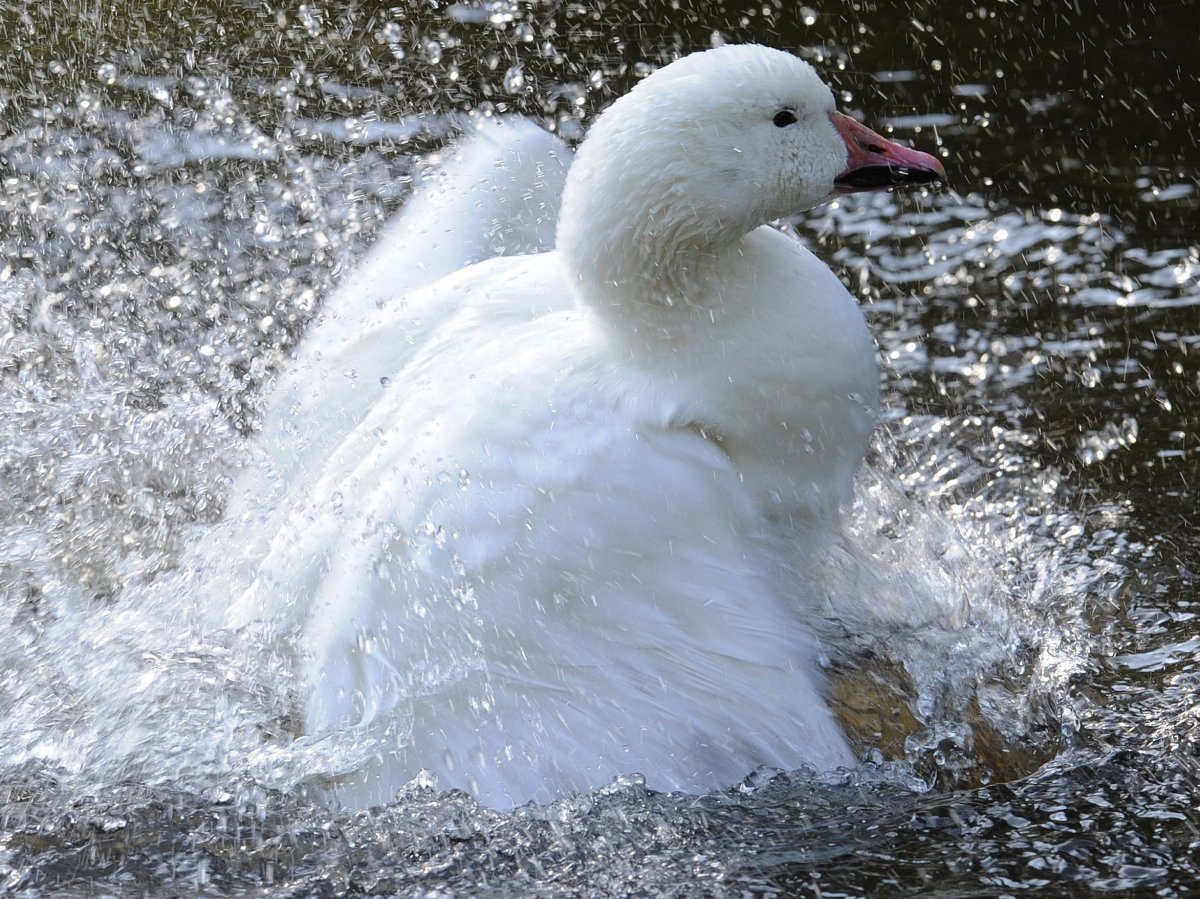EDMONTON – Alberta plans to declare its first spring snow goose hunt this year in an attempt to help deal with a species that has grown so numerous that it is destroying its own habitat.

“They’ve been overabundant for the last 15 years,” Duncan MacDonnell of Alberta Environment says. “They’re causing damage to their home range in the Arctic.”
Over the last 20 years improved farming methods have resulted in better food supply along the big, white birds’ migration routes, says a report on Environment Canada’s website.
Snow geese tend to nest in large colonies of thousands of individuals, which can overgraze the delicate Arctic tundra they scour for grasses and sedges.
“Grazing and grubbing by geese not only permanently removes vegetation, but also changes soil salinity, nitrogen dynamics and moisture levels,” says Environment Canada. “The result is the alteration or elimination of the plant communities, which in all likelihood will not be restored.”
Suitable nesting grounds are limited and some areas used by the geese are likely to take decades to recover.
Jurisdictions across Canada and in the United States have been moving to increase hunting of the birds in an effort to reduce their numbers. Saskatchewan and Manitoba already have spring hunts; Ontario and Quebec have also tried to increase the harvest.
The current snow goose population is about 1 million birds — roughly twice the number scientists believe nesting grounds can support over the long term.
- Alberta to overhaul municipal rules to include sweeping new powers, municipal political parties
- Grocery code: How Ottawa has tried to get Loblaw, Walmart on board
- Military judges don’t have divided loyalties, Canada’s top court rules
- Canada, U.S., U.K. lay additional sanctions on Iran over attack on Israel
Alberta, which already has a fall hunt, plans to add a lengthy spring season from March 15 to June 15. It is to include both snow geese and the very similar Ross’s geese.
MacDonnell said the actual length of the hunt will depend on how quickly the winter snow melts and how long the birds stay in Alberta before migrating north.
“Nobody knows when those birds are going to be flying through. They’ll move as the snow line goes further north. They could be here for a while or they could be here for a cup of coffee.”
Details on licensing for the hunt are still being worked out, MacDonnell said.
Hunters will be allowed to shoot up to 50 birds a day, with no limit on how many they can have in their possession.

Comments